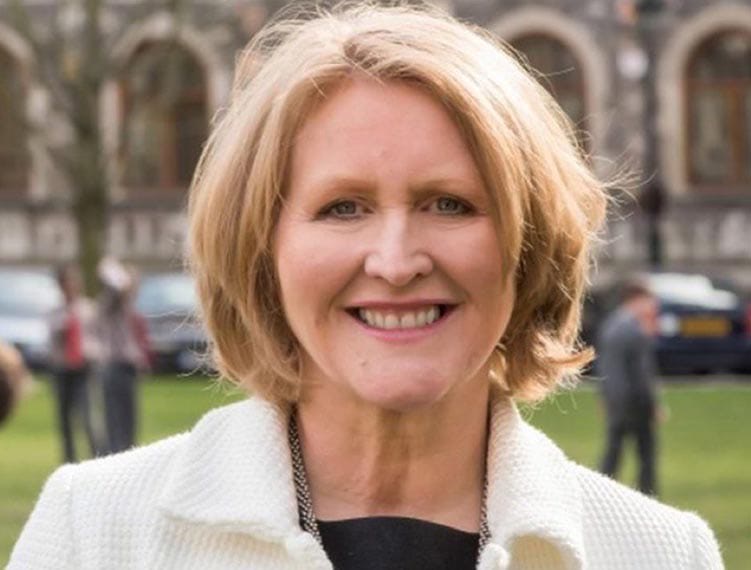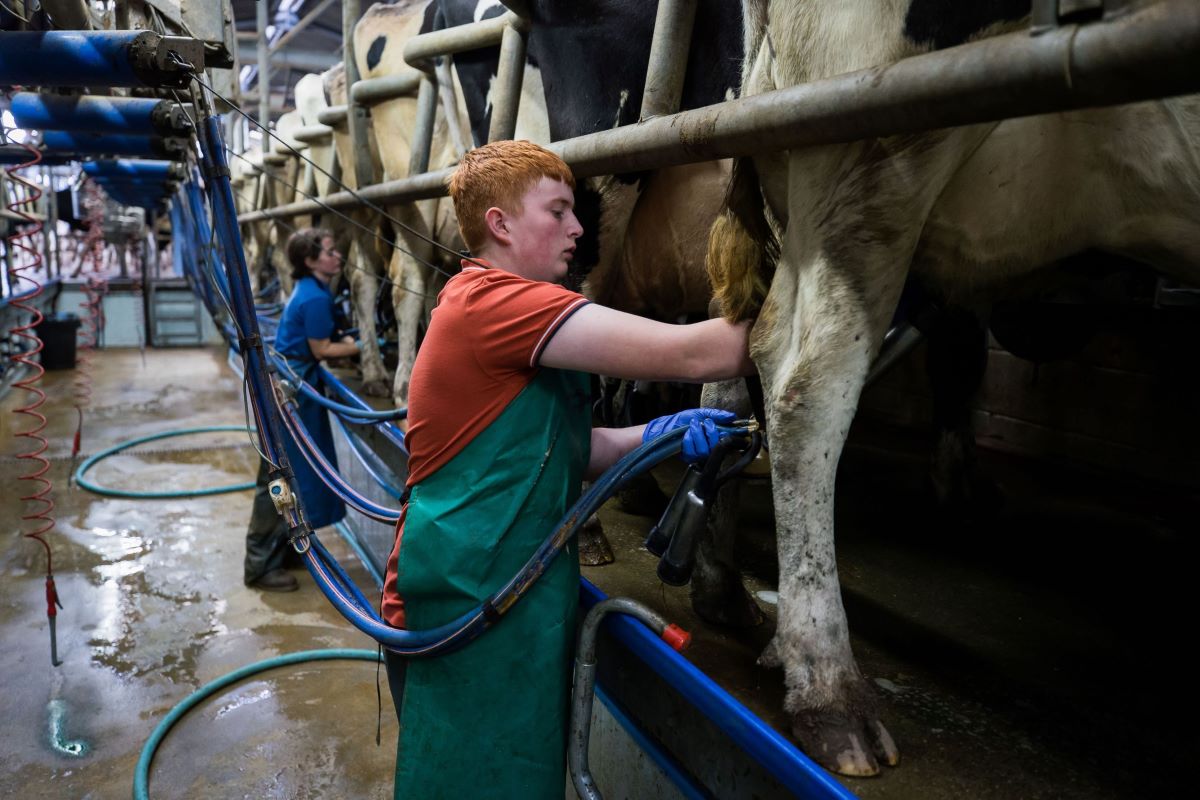Children and schools must come before pubs and shops in planning for future Covid-19 lockdowns

@AnneLongfield, @ChildrensComm for England, is today (Wednesday) publishing a new briefing “Putting children first in future lockdowns” setting out the key actions needed to ensure children are at the heart of planning for any future coronavirus lockdowns, including making sure all children are back in school in September. The Children’s Commissioner argues that if any local or national lockdown takes place, schools should be the last places to be locked down, after pubs, restaurants and non-essential shops.
Given what we know about how Covid-19 affects children, and how much children travel outside the home, the Children’s Commissioner says the scientific argument for keeping educational settings open is strongest for nurseries, followed by primary schools, followed by secondary schools. But once the wider social costs of school closures are factored in, it is clear that all schools should be kept open as far as possible, and only closed as a last resort once other options have been exhausted.
The briefing calls for regular testing of pupils and teachers – regardless of whether they have Covid-19 – which is essential for keeping schools safe by both providing assurance that they are safe and preventing entire ‘bubbles’ or year groups from having to be sent home once a case of Covid-19 occurs. This will be particularly important in the 2020/21 winter flu season when clusters of flu could be mistaken for a Covid-19 outbreak and result in unnecessary closure or interruption.
It argues that the results of testing on teachers and students should be pooled with attendance data to model risks of transmission and test effective strategies for minimising risk. Any outbreak in a school should be thoroughly investigated so that potential links in the chain of transmission can be pre-emptively broken in future.
The Children’s Commissioner says that if schools do have to close they must remain open for children of keyworkers and vulnerable children as before the summer holidays. This latter group of children should be renamed ‘priority children’ and a concerted effort must be made to work with these families to increase their child’s attendance. The Government should consult on the type of children covered by the priority list and allow more flexibility for teachers to identify children as a priority where they have specific concerns.
The briefing argues that where other children need to work online, the Department for Education must expand its laptop programme so that children in all year groups who need them can receive devices and 4G Wi-Fi routers quickly, in order for them to undertake home working. Work should be undertaken now to assess the real level of need and ensure more flexibility for headteachers to get laptops to the children who need them.
Consideration should also be given to the impact on those children expected to take exams next summer so that these children are not disadvantaged, especially in the case of extended local lockdowns.
The briefing warns there is risk that some children will struggle to transition back to school after a period away and that this could manifest in a number of ways, including failing to attend (or low attendance) and challenging behaviour. The Children’s Commissioner argues schools should make pastoral care a clear priority and identify reasons for non-attendance or challenging behaviour and what support children need. The Department for Education should closely monitor attendance and exclusion figures within areas which have experienced a local lockdown or increasing cases of Covid-19, in order to identify where further help is needed.
With evidence of a rise in mental health issues among certain children because of the lockdown, the Children’s Commissioner calls for local NHS mental health teams to work with schools to provide advice and support to prevent problems.
During the last few months, children in Young Offender Institutions and Secure Training Centres have been spending over 20 hours a day in their cells, family visits have been banned and face to face education has stopped. The Children’s Commissioner calls for a greater relaxation of these conditions so that children have access to better provision and quality of life in future lockdowns.
The briefing also suggests the Government hold a press conference aimed at children, and says children should be allowed and encouraged to submit questions to any press briefings, just as adults were in the previous daily press briefings.
Ten key principles
- Compared to adults, children appear to play a limited role in spreading Covid-19 and are less likely to get ill from it. This is especially true for younger children, and less so for older children and teenagers.
- Children’s perspectives must be better reflected in scientific and public health advice. Any measures implemented must take into account children’s needs and circumstances where they differ from those of adults.
- Education should be prioritised over other sectors: first to open, last to close. When only a limited amount of social interaction is feasible, the amount accounted for by education must be protected – at the expense of other sectors/activities.
- Reducing Covid-19 transmission in the community is very important, but it should not be automatically assumed that this requires closing schools – except as a last resort.
- In response to a local outbreak, rapid tracing must distinguish between the source and the location of infections. Schools could be more likely to be the latter than the former – i.e. infections detected within schools could reflect outbreaks that originated in local workplaces.
- With rapid testing of pupils and teachers, any confirmed Covid-19 cases and their close contacts can be isolated without necessarily having to send entire classes or year groups home.
- Full lockdowns must balance the epidemiological benefit to children against the social and health costs to children of closures to schools, leisure/youth centres, etc.
- Any rights extended to adults must also be given to children in ways that work for them (e.g. the right to exercise, do sports or play outside).
- Communication about the lockdown must make clear that risk of infection should not prevent children and families seeking help they need, such as urgent healthcare which is not related to the virus or refuge from domestic abuse.
- All public bodies should begin planning for the possibility of a local lockdown now, to ensure that they can respond as quickly and effectively as possible if one were to occur.
Anne Longfield, Children’s Commissioner for England, said:
“Too often during the first lockdown, children were an afterthought. Despite the welcome decision to keep schools open for vulnerable children, too few attended. Those schools that did bring back more children before the summer holidays often found classes were only half full. That must change in September.
“The Government’s promise that all children will be back to school after the summer holidays is a step in the right direction. However, if a second wave occurs, children must be at the heart of coronavirus planning. That means schools must be the first to reopen and the last to close during any local lockdowns. Regular testing must be also in place for teachers and pupils, to reassure parents.
“If the choice has to be made in a local area about whether to keep pubs or schools open, then schools must always take priority.”
Cllr Teresa Heritage, Vice-Chairman of the Local Government Association’s Children and Young People Board, said:
“We know that many children will have been out of school for up to six months, which will have an impact on their mental wellbeing and development, and we support the Children’s Commissioner’s calls to keep schools open for as long as is possible.
“Councils have been working closely with schools throughout the coronavirus pandemic to ensure they remain open for vulnerable children and families, and where needed, councils have delivered vital IT equipment for children.
“As we look to return to normal from September, councils will continue to work with all schools and local partners but it will be essential that councils have the capacity and necessary data to play their full part in the Test and Trace programme.
“Any local decision to close a school will need to be based on the scientific advice.”











Responses